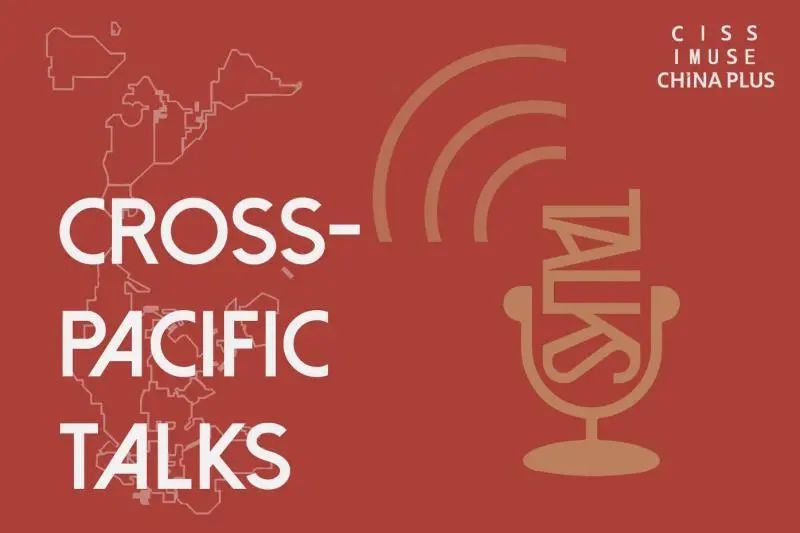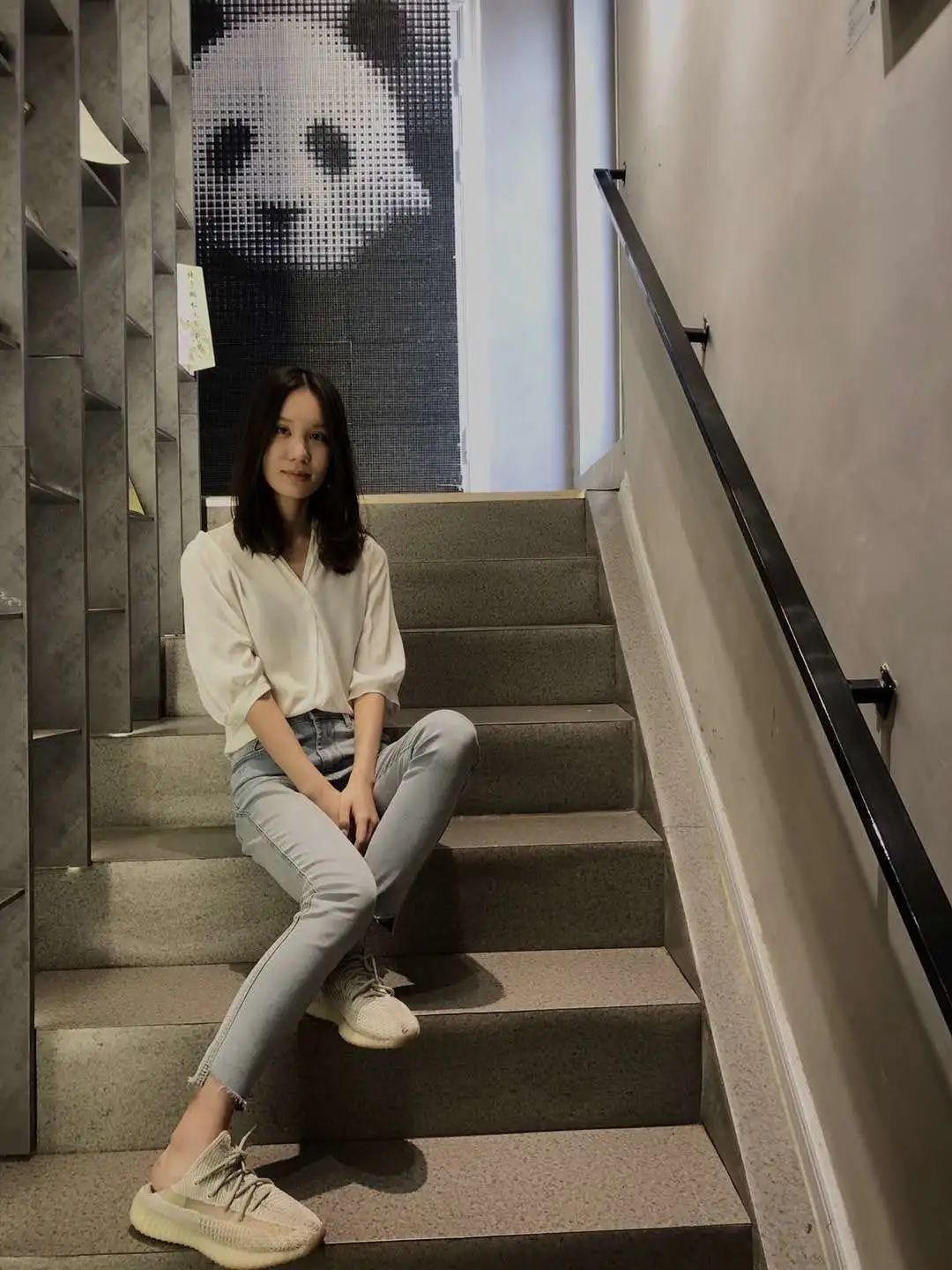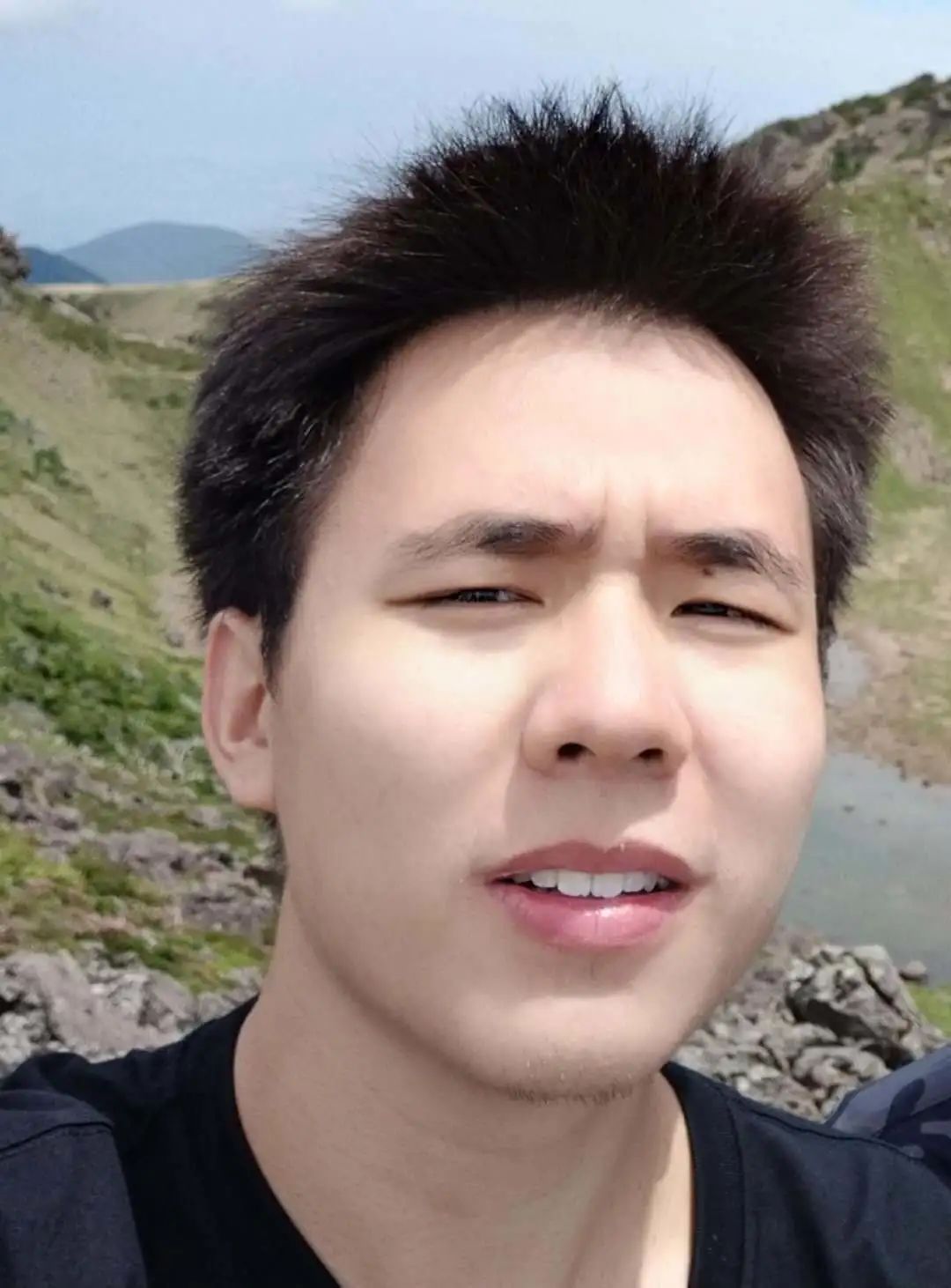
Feast your ears on an inspiring discussion
between top students from China and the US
in the "Cross-Pacific Talks" podcast series.
Co-produced by China Plus, CISS and IMUSE,
it offers a unique perspective on topics related to COVID-19 !
· For students, how much impact has the virus had on their lives, their careers, and their understanding of the world?
· What’s the most impressive experience they have had during the pandemic?
In the first episode, we invite undergraduates from Tsinghua University, Peking University, Massachusetts Institute of Technology (MIT) and Harvard University to discuss and share their opinions on this continuing topic.
A rising junior at THU studying accounting and data science
Currently in the ASIC board and has multiple experience in international communication
During the COVID-19 quarantine, she started Desk4Us Project to help K12 students affected by the virus
A rising junior at PKU studying international organizations and public policy
The co-director of IMUSE 2020 Summer Session
An active participant of MUN, having chaired 2 meetings at PKU and having won 2 awards at 2 MUN conferences as a delegate.
Enjoys and embraces cultural diversity and aspires to be a polyglot fluent in Chinese, English, French and Korean in the near future
A rising senior at MIT studying computer science and molecular biology.
Has been to China for the Chinese Bridge Speech Contest, where he represented the US, and for the 2018 IMUSE summer conference.
Hobbies include history, ink painting, and glassblowing
A rising junior at Harvard, studying Economics and Statistics
from Buenos Aires, Argentina
Spent a significant amount of time growing up in Germany, and speak English, Spanish, and German at a native speaker level
The following are excerpts of the whole discussion
What kind of challenges and gains does the pandemic bring to you? How does it affect your life and academic research?
The COVID-19 definitely hit us all of guard. We just spent the rest of our vacations staying at home and worrying about our friends from Wuhan and the whole world, at the same time wanted to do something to help the situation. So we just notice that due to the coronavirus outbreak, there were lots of high school and also middle school students also like us staying at home and doing nothing. We're college students and we can help them with this situation.We started this nonprofit project, which is called Desk4Us. And we tried to offer online free tutors to help with their studies and psychological support. So we eventually recruited over 1000 college volunteers and we helped over 600 families during the pandemic. I think it's pretty different from what I used to do because I used to be a receiver of the societies but right now I'm trying to transfer my role into a giver. So this pandemic really gives different experience for me. It definitely gets me into focusing more on other people's life.
So far our lives have changed a lot. And I think its just have to become used to sort of changes into routine. The biggest change is that this semester ended earlier on campus, which had not been predicted at the beginninng of the pandemic. And definitely the fact that your social life will be different, that you will not be able to meet everybody in person anymore but over zoom. And also classes I can speak on that little bit.
What do you learn from such a global pandemic or what's your feelings about it?
I think it's taught me how resilient people are. Because I do remember in my 6th grade when the swine flu happened, my school started winter break earlier. But in this case, with more access to technology, we just kept on with school. It just turned on line. And I think it demonstrated that in the past, if you had the health crisis like this, education would have just been stopped. People would have isolated, too. I think it taught me how technology can play such a big role in just keeping people connected, having contact, and still being able to reach out to others, even when there is a public health crisis, and also the importance of social distancing and taking care of yourself during this time.
I read a report from University of California Berkeley that said you know there would have been maybe at least five times as many infections had we not done these restrictions in place. So I think that is really speaking to what people collectively have done and looking forward to what we should do with public health next time or for the future. Definitely we should be paying more attention to technology and shelter-in-place, being monitoring any of these type of events. Because as we see, anything like that could spiral into something that's as critical as this one. So I definitely say we should increase our attention back public health in a way that we haven't had an, in particular, focus on vaccines and contact tracing.
Different countries have different ways to handle COVID-19 crisis. Are there any ways that impressed you?
I know the response of Germany and Argentina. As I was arriving Germany from college in the US, there were a lot of cases at that time in Germany compared to other countries. I remember Massachusetts had maybe like 100 cases and Germany had like 8000. Although Germany doesn't have Shelter-in-place or those compulsory orders, a lot of people have been effectively social distancing. And an interesting measure that they're implementing now is that police are randomly knocking on people's stores and just testing them for antibodies. I also think the German health care system can handle a lot more cases than, say, Argentina. When Harvard let everyone know that they should go back home, the week after Argentina put Shelter-in-place and they haven't lifted it since. And there's no flights outside of Argentina August 28, even though they haven't had as many cases as like a lot of other places. So I thinka lot of measures countries take depend on how many ventilators they have, how much they actually need to force people to stay or socially distance, or how the health care system work how much it can handle. And I think those things influence how much risk countries want to take when it comes to pandemic or how strict they are with social distancing, too.
There are a ton of measures that China taken in coping with this crisis, especially at a community level, like the security guard cells of a lot of bonds is taking temperatures of the process, also checking with posh travel records. But whether it is effective definitely depends upon how those actions are actually implemented. For example, in my hometown Chengdu, I still remember there was time when I entered the building a block of apartments, I was blocked by a security guard and he just asked me for the QR code on my cell phone. But a couple of days later, when I try to re-enter this building, the securities just ignore me and just let me in without even checking my QR Code. So at the local levels, there's definitely still a lack of the actual actions that still effectively carry out.
How do you see the distribution of the vaccine? Should the vaccine be treated as a public porducts and serve for all countries?
I think that at least chemical composition should be public for sure and they should be affordable. I think that the IMF, the World Bank, can play a role into helping countries that may not be able to afford the vaccine, to actually let people also have the vaccine in developing countries. A lot of developing countries are racking up a lot during this pandemic, it would be unfair to burden them and say there's a vaccine but you cannot afford it.Also when it comes to public health, this vaccine should be a public good. Maybe it can be produced by private enterprises, but government and also international organizations should make sure that even those countries that can afford the vaccine.
It's a very very tough question. Even in the international community, there is no mature and well-developed answer to that. Taking a look at the past few years when people were dealing with other pandemics or global health crisis, vaccines were definitely one of the huge factors of the international gaming between developing countries and developed countries. I also remember there was one particular case I once learned. It was about Indonesia using the virus samples as the bargaining chip for securing some vaccines from the pharmaceutical companies from developed countries. Actually vaccines are more than just the procurements or the provisions of some public goods. It involves a lot more factors than we ever imagined. But it's definitely idealistic that we should appeal to these organizations and developed countries’ governments to advance the procurement and provision of the vaccines and make it accessible to all the other countries. And I hope during this very special period of time, the governments could join together to advance the research and the accessibility of vaccines. And when it comes to equalizing the apps of vaccine, I think there's definitely a very effective way for the developed countries to adopt in terms of securing the vaccines for their own countries. And developing countries can issue these orders to manufacture vaccines without even considering the consents of the patent holders of the vaccines, which is called compulsory licensing.
First we should consider who do we prioritize the vaccine administration for within countries. I think if we have limited capacity, let's vaccinate those who are more likely to die of the virus, elderly people and those with preexisting conditions, and have everyone else wait a little bit till we can produce enough doses. Pricing is also a very difficult question. I think the idea of the compulsory licensing that Huanzhang brought up is right. Moreover, WHO may subsidize such a vaccine to make it cheaper for people in developing countries to afford.
Speaking of humanitarianism, I believe like vaccine being public good is definitely the right thing to do. As the second biggest economy in the world, China has the responsibility to contribute its strength to preserve our public health and world peace and to push forward the continuous development. And speaking from the economic perspective, I think the cost of making vaccine public goods is way lower compared to the cost we will be paying if COVID is still continued to spread. So I think this is definitely one of the reasons why we should make vaccine public goods and why China made the statement in WHO and confirmed the specific measures. We can also allow charitable organizations to step in to help release the cost and the burden on several governments for developing countries.
Does this global pandemic give you any inspirations on national security?
Since the cold war, when it comes to national security, most people will consider the military matters. But this pandemic is a biological threat and a threat for public health. We are concerned about the foreign countries, and those production facilities for responding to a situation like this. So I think the definition of national security would change a little bit to include those sorts of aspects as well.
National security, it has changed a lot ever since the cold war. We have to realize that in the age of globalization, all the countries are interconnected and especially in the face of this global health crisis, no countries could be coping with this crisis individually or alone. We have to join in this great cause to fight against this virus. And it does give us some caveats to learn from this crisis. For example, we should prioritize the provision of vaccines to some other low-income countries, or those who are more at risk. We have to think about the interests of others, the interests of all the countries involved from a much larger, broader perspective. We have to think about this national security and the context of global security. I think this is definitely one of the lessons we have to learn from this whole crisis.
The principle of IMUSE is Communication for Comprehension. From the perspective of communication and promoting understanding, what do you think that as the two biggest ecomomiescan what China and America can do? How can both countries coorperate with each other better to face the crisis like virus or climate change?
I've been to US in the last summer for a summer school in Berkeley so I get to know US a little bit. But today I learned a little bit about what other people in other parts of the world are thinking. Speaking in terms of cooperate efforts China and US can do to preserve world peace. I think corporation is definitely needed because as the two biggest economies in the world, it is definitely better for us to cooperate compared to just like turning ourselves against each other.
At the college level, a lot of organizations in American colleges do collaborate with China. Like I'm also involved at Harvard Association For US-China Relations. And we run conferences at Harvard. We also run summer courses in Beijing, Shanghai, and Guangzhou. and we try to set up a collaboration also with younger students. But when it comes more broadly to diplomacy and just kind of like collaboration, I think there is some space in some organizations to improve relations. For example, in the World Bank, there's a lot of collaboration between like US and China, and other bigger stakeholders to improve the lives in developing countries. But there's a lot of space to improve when it comes to technology or health care, because it seems like the environment is more competitive rather than collaborative.
Do you have any planning for future career? How will you make contributions to the world?
I'm currently studying at Tsinghua at my second year, and I’ve been studying in China for basically my whole life. So, I’ve actually been looking forward to starting my graduate school in another country. After that, I'm planning on entering maybe private sector in the finance and business. And since I started this cross project during the quarantine, I'm given more thoughts on what we as young people can do for the entire human. So as a student studying accounting and also data science, I’ve learned not only the fluctuation and the fascinating part of economy, but also preciseness of data and numbers. By combining those two regions together, I may do something in data science or on business analysis. People can get more logical and reasonable results regarding the economic growth of the whole world. China and US can both build a better and smoother communication bridge between these two using technology and methods that we're learning right now.
First of all, I have to finish my bachelor’s degree, learning more knowledge about my major, learning about international relations and the roles that international organizations can play. In the future, if possible, I would like to intern at some international organizations or some branches of international organizations. I'd like to see how these organizations are functioning. As for my post-graduation plan, after graduation from my school, I properly plan to pursue a master's degree overseas, preferably in the UK or in Paris, preferably at Sciences Po, which is a very fabulous school for international public policy and also international politics. As for the grand plans, if everything goes well, I would definitely try my best to get into one of the largest international organizations, for example, any one of the UN agencies and trying to contribute my efforts to the UN as a Chinese civil servant.
I just finished my 3rd year at MIT. A lot of my experience I got outside school has been in the biology sector and doing software for either healthcare or for biomedical research. Immediately after MIT I intend to finish a master in engineering and computer science and molecular biology. I think there's definitely a lot of areas where software can be applied for healthcare or for biomedical research. This is an exciting avenue that could be expanded further and could be scaled up quite fast and help a lot of people that way. On top of that, I do intend to continue studying mandarin. Although I don't know if I will end up using those two interests together,I definitely intend to continue learning Chinese language and Chinese culture. That's also definitely part of my long-term plan.
I'm studying economics at Harvard and I'm interested in public policy too. After finishing out my bachelor at Harvard, I hope to actually get a master or a PhD preferably in public policy or economics, or political economy, one of those three. And after that, I either have plans to go to the a private sector or consider working at a multinational organization such as the IMF or the World Bank.





